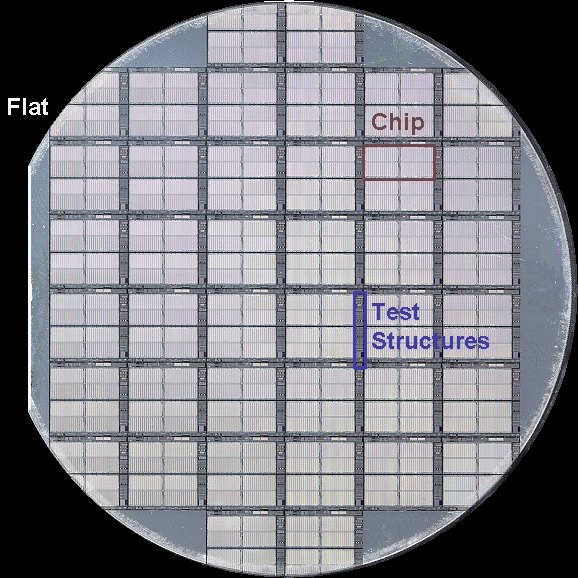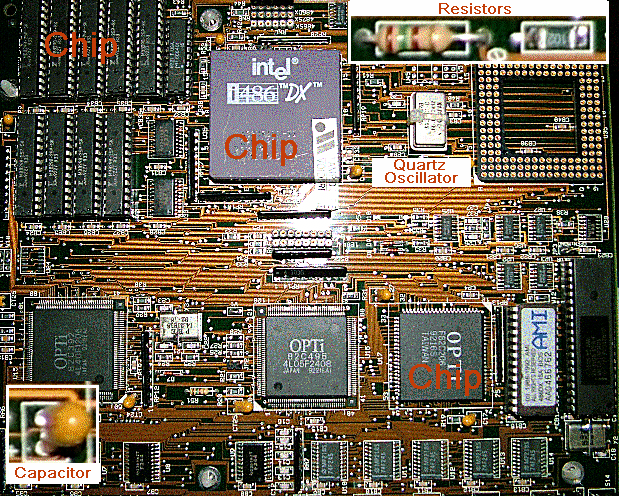 |
If you don't have some idea about what "microelectronics" means, you
might be studying the wrong subject. So let's be brief: Microelectronic means that
| | |
| | |
 |
Wafer (150 mm diameter) and chips
(16 Mbit DRAM memories from about 1990) |
| |
|
 |
Many basic electronic components are integrated into an integrated
circuit, an "IC" |
|
|
 |
The components of choice are mostly transistors,
sometimes capacitors, rarely resistors, and almost never inductors. | |
|
 |
Integrated transistors come in two variants:
MOS transistors are the most popular ones, and MOS technology (especially in
the variant CMOS
technology) is the name of the major game in semiconductor technology. You know all there is to know at present about these
transistor types because you learned it before - see the links from above. | |
|
 |
Usually, integration means that > 1.000.000.000 components are made in and on one
piece of Si, about 1 cm2 in size, called a chip. The transistors
and other components are first isolated from each other and are then linked by conductors in such a way that a circuit or
system results. The system could be a memory, a microprocessor, or whatever.
| |
|
 |
Chips are made as part of a Si
wafer, typically 150 mm - 300 mm in diameter. Obviously you want as many chips
as possible on one wafer. | |
|
 |
Next, single chips are cut out and "packaged". As a result you get the typical "IC"
- e.g. a little black "brick" with many little "legs" by which it is connected (via soldering) to the
circuit board. | |
|
 |
Class Exercise:
- What is the approximate lateral size of one transistor in an IC?
- Why are there no 16 GB memory chips
now.?
- What properties should a semiconductor have for making IC's?
- What exactly produced complexity and market growth rates of 30 % for more than 30
years?
- Where will it end?
|
|
| |
| |
| |
 |
Here is a picture of an (old) printed circuit board with plenty of chips and other
components: |
| |
 |
| Circuit board (about1995) with chips and other stuff |
|
© H. Föll (Semiconductor Technology - Script)

